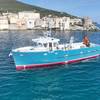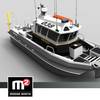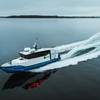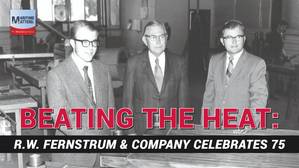GE’s Marine Solutions reports that the world’s first Liquid Propane Gas (LPG)-fueled ferry design to use GE’s COmbined Gas turbine Electric and Steam (COGES) system has successfully completed Hazard Identification (HAZID) meetings.
The consortium of Youngsung Global, DINTEC, Korea LPG Industry Association, GE’s Marine Solutions and Far East Ship Design & Engineering Co. (FESDEC) signed a multilateral memorandum of understanding in November 2016 to cooperate on this unique ferry design.
“Bureau Veritas, a world-leading classification society with a large and recognized expertise and experience in gas fueled ships, chaired the HAZID meetings. All consortium members were represented as well as SK Gas and E1 who are members of the Korea LPG Industry Association. These meetings took place over a three-day period in Busan and are a crucial tool used to identify hazards and safeguards at the early ship design stage,” said Brien Bolsinger, GE’s Vice President, Marine Operations, Cincinnati, Ohio. “Now with HAZID meetings successfully completed, the consortium will proceed with securing a shipbuilding contract and will seek Approval in Principle to further validate the safety of the ship design including the COGES propulsion system and the LPG fuel supply,” Bolsinger added.
Traditionally, a new ship design undergoes a series of processes from research and development to ship architecture and design, HAZID and AIP certification, and finally onto contracts with the shipyard and suppliers. Therefore, meeting HAZID requirements is considered a key milestone in ensuring the final success of the LPG COGES ferry design process.
This LPG-fueled ferry project provides an opportunity to showcase how Korean technologies advance the global marine industry. In addition, the project allows local Korean companies to participate in the full scope from designing the ferry to building major operational equipment, such as LPG tanks and fuel supply systems.











